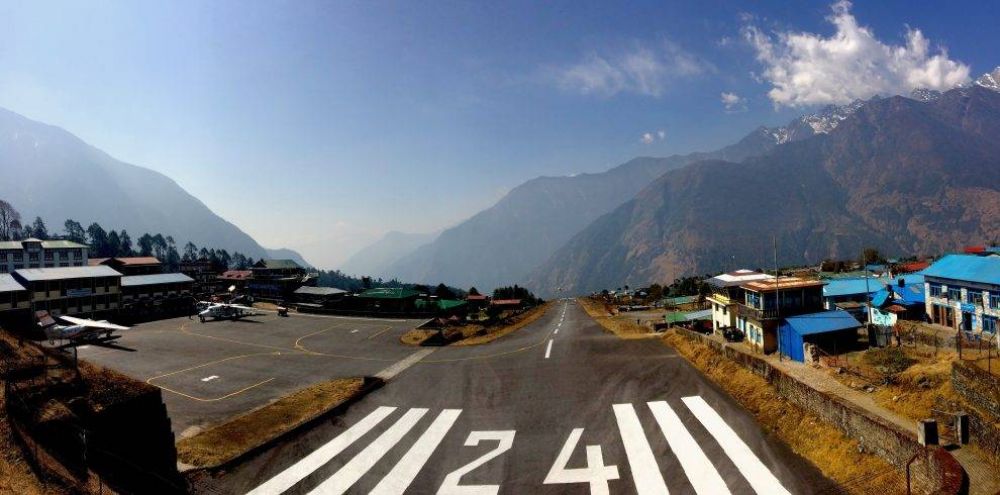

Nestled within the Solu-Khumbu district, Lukla is renowned as the starting point for the exhilarating journey towards the Everest Base Camp. With an elevation of 2,860 meters, Lukla and its Tenzing-Hillary Airport stand as gatekeepers to the highest peaks in the world, offering adventurers and trekkers the portal to the grandeur of the Himalayas.
Lukla's rise to fame in the tourism industry is intimately linked to Mount Everest. Ever since Sir Edmund Hillary and Tenzing Norgay Sherpa conquered Everest in 1953, the region has seen a growing influx of mountaineering enthusiasts. However, it was the tales of their epic adventure that began to draw tourists from around the globe, eager to witness the wonder of the world's highest peak.
Before the construction of the Tenzing-Hillary Airport in 1964, adventures to Everest involved long and arduous treks starting from lower regions like Jiri. Sir Edmund Hillary, after recognizing the need to aid trekkers and aid local communities, took the initiative in facilitating the construction of an airport, which dramatically changed the accessibility of the region.
Over the decades, Lukla has evolved into a bustling hub. It transitioned from a small village to becoming a critical stopover for lodging, supplies, and last-minute preparations before trekkers venture into the Khumbu region. In response to the increasing tourist traffic, the area saw developments with the establishment of guesthouses, eateries, and even internet cafes, all providing essential commodities needed for the modern traveler.
Despite its popularity, Lukla's tourism faces regular challenges, primarily due to varying weather conditions that can lead to treacherous travel and sudden airport closures. These instances showcase both the remoteness and the allure of Lukla. Developments to improve safety and infrastructure continue to be a priority for the Nepalese government and tourism stakeholders.
Sustainability has risen as a significant trend, with efforts focusing on minimizing the environmental footprint of tourism. Efforts to implement eco-friendly practices among local businesses are evident, and many trekking companies now promote 'leave no trace' policies. Additionally, there is a growing emphasis on community-based tourism, ensuring that the benefits of tourism extend to the local population.
Adventure tourism has also diversified in Lukla. Besides trekking, visitors can engage in activities such as mountaineering expeditions, helicopter tours for an aerial view of Mount Everest, and cultural experiences within the Sherpa communities.
Through continuous growth and adaptation, Lukla remains a pivotal destination in Nepal's tourism landscape. Celebrated for its majestic beauty and the unparalleled sense of adventure it offers, Lukla continues to beckon travelers from every corner of the world to experience its unique charm.